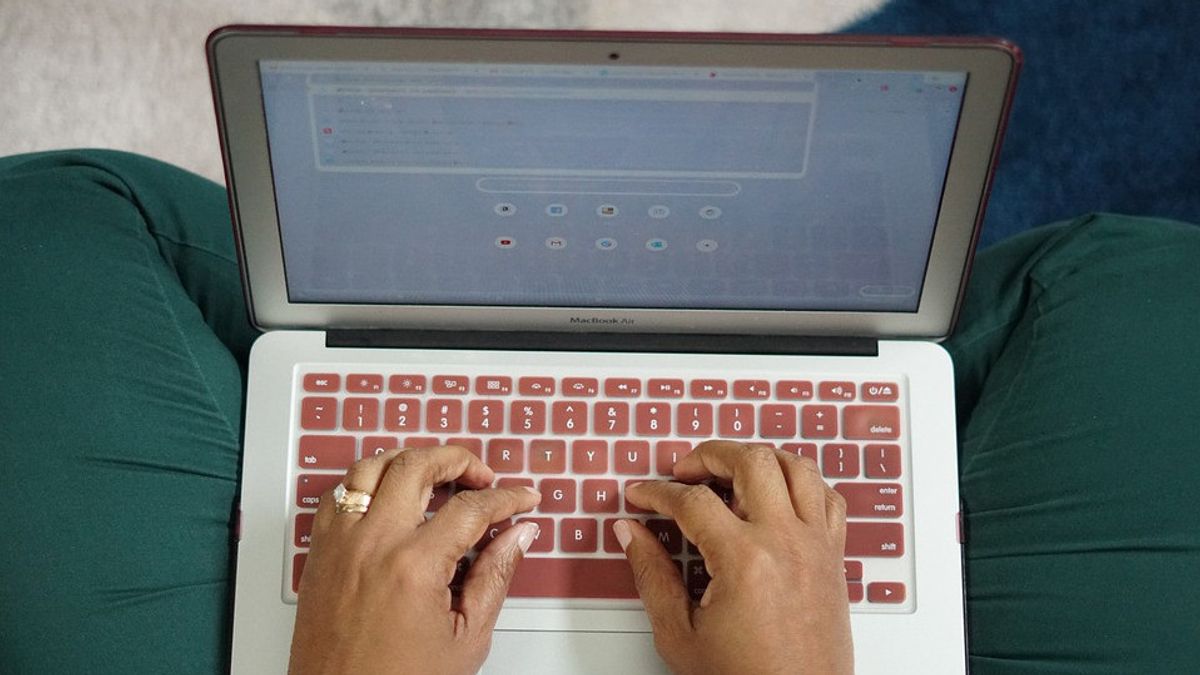JAKARTA - One night in the past weeks, a chat entered the WhatsApp group of the VOI editors. An editor-in-chief sent a series of article links from various websites whose contents were plucked from VOI articles without permission. Today my friends in Mojok reacted to a similar experience. We explore this struggle, which is very personal but important to understand.
"That's what was recorded," wrote the VOI editorial crew who happened to write all the articles that were picked up. There are seven articles in total. Picked up a different website. There is a change only in the conjunction. Some just modify the first paragraph. Others are dominated by copy-paste (copy and paste) techniques.
And that night's report wasn't the first finding of a VOI article to be copied. Likewise with Mojok, which today reacted to the removal of their article by a site. Managing Editor Prima Sulistya explained that as far as his contribution to Mojok goes, he has found at least five times that Mojok content was taken without permission.
"It's varied. Some people pick up articles. Some have illustrations. There have also been transfer rides, the writings in Mojok were reread to become YouTube content," said Prima, contacted by VOI, Friday, August 12.
Prima has contacted the administrator of the relevant website. As usual, said Prima, Mojok always puts forward good prejudice. "Maybe the people who manage the crowd and the person in charge don't know that their content has been stolen from Mojok." But Prima said the response he got was not as expected. "I contacted you. Since the first answer you've been gasping."
HEH @indonew5id. PLEASE TAKE DOWN THE STOLEN TEXT FROM THIS MOJOK. We at @mojokdotco never allow our script to be rerun without our permission and the author!@tanikelana https://t.co/YZLjohc1un
— Prima Sulistya (@prima_sulistya) August 12, 2021
"He was adamant he didn't want to be called theft. He said it would be more appropriate to call it 'taking without permission.' The reason he links to the original article was sent by Pak Rizal Ramli's staff to him, and he just uploaded it. I'm surprised, how come media people can casually load other media content. He mentions reasons, but the reasons change."
Mojok demands two things from the site manager. "Retract the article and apologize to Mojok on Indonews social media. The second one is not served." Prima said this reaction was taken by Mojok to defend the author's copyright.
"We are supported by contributors (writers outside the Mojok editor). Not all of these independent writers have the platform and resources to prosecute abuses of their rights."
"Stealing. Plagiarism. Wrong. Period. After all, did the published writings come from an empty space? No need to count the money. Just look at the time the writer spends writing, the editor editing, and the illustrator making illustrations. who, the law is also clear: if you want to use it, borrow it, take it, or whatever, it must be with permission."
Not an easy job
In practice, writing is not an easy job. As Prima said above. No need to talk about money losses or other material things. Try to calculate the literacy and creative process of creating a written work. The article entitled Reminiscing on 90's Quality TV Shows: From the Cemara Family to Si Doel Anak Sekolahan, which was picked up by a site called Media 24 Hours, for example.
The author collected three books --Berani Nolak TV (2005), Robinhood Betawi (2001), Ketoprak Jakarta (2001)-- and interviewed Betawi culturalist Masykur Isnan to write one article. Then Media 24 Hours just had to copy it by changing the title to Remembering 90's Quality TV Shows, from the Cemara Family to Si Doel. The rest, copy-paste, without even citing the source.
Another VOI article that was taken without permission is the Palang Pintu Tradition, Proof of the Sacred Marriage of Betawi People. The article, which was made by collecting data from two books --Maria van Engels: Son-in-law Habib Kwitang (2006) and Betawi Tempo Doeloe (2015)-- was later copied by a site called Reporter Satu, with only the title changing to Know the Tradition of Opening the Cross Doors in Betawi Wedding Procession.













